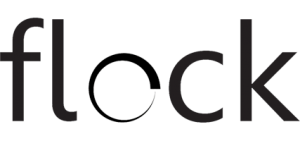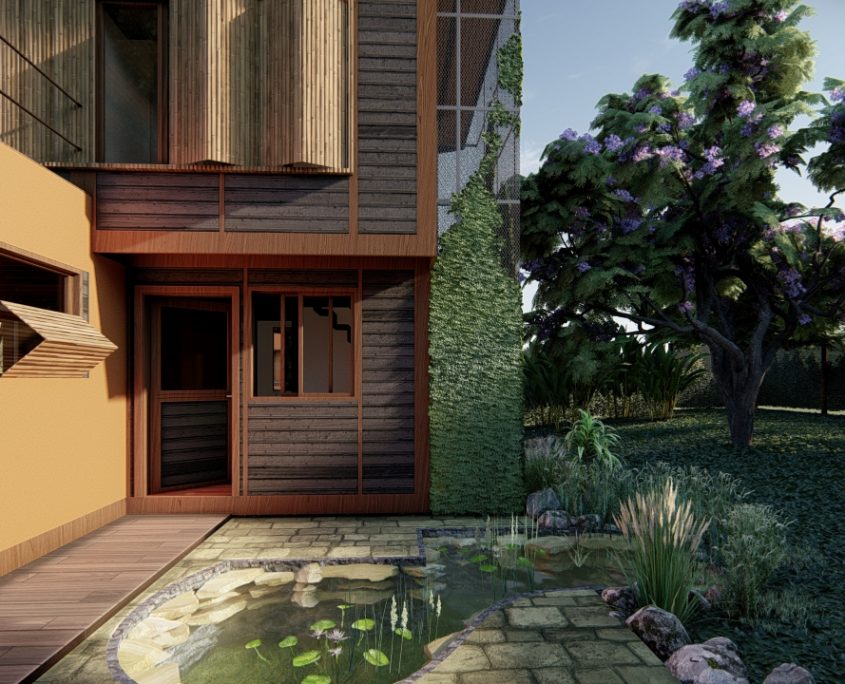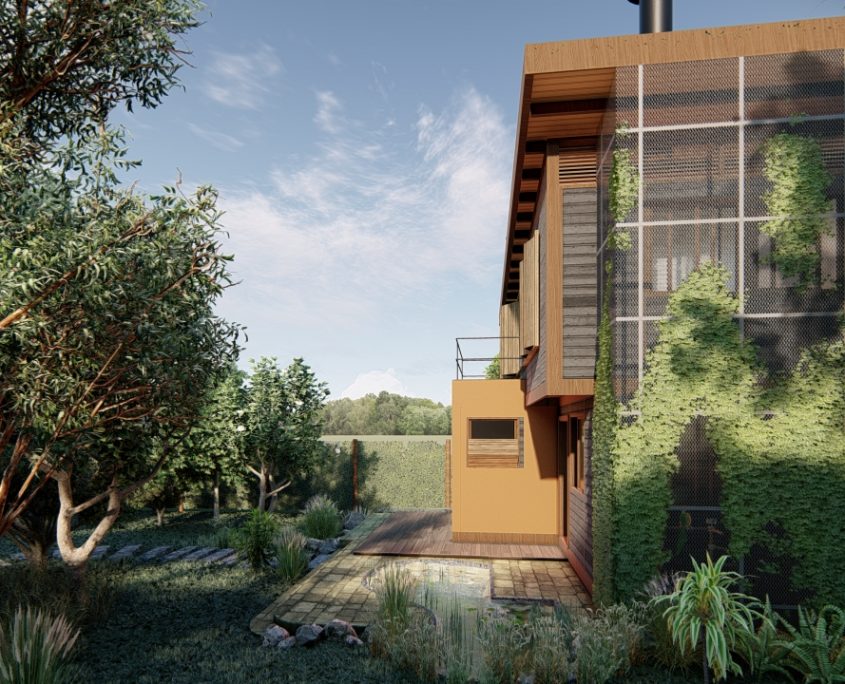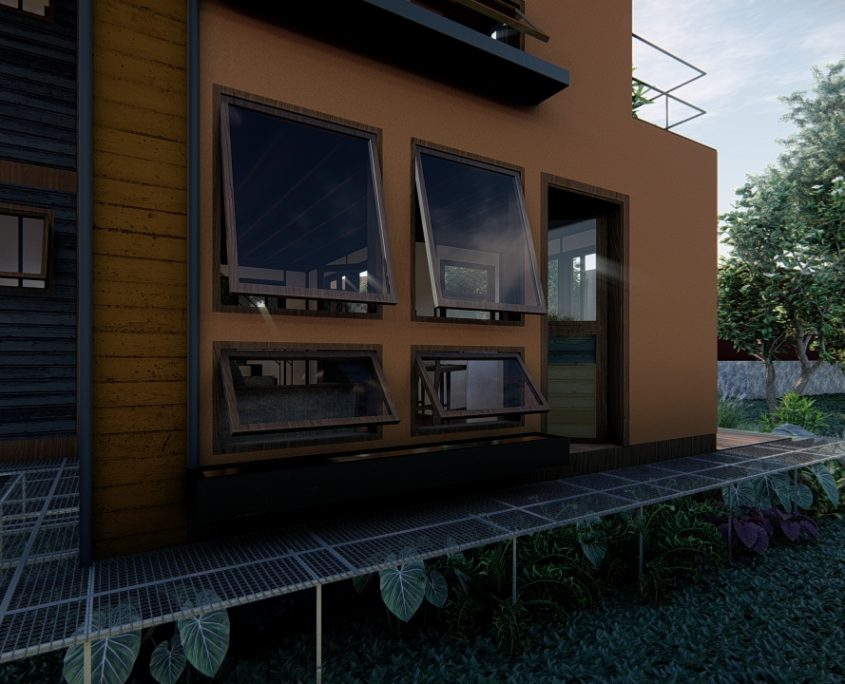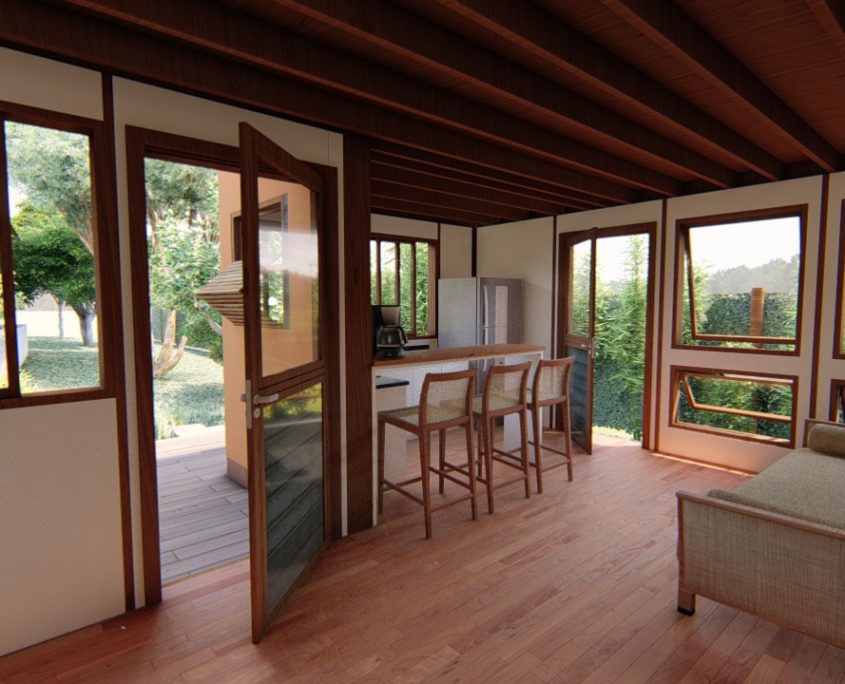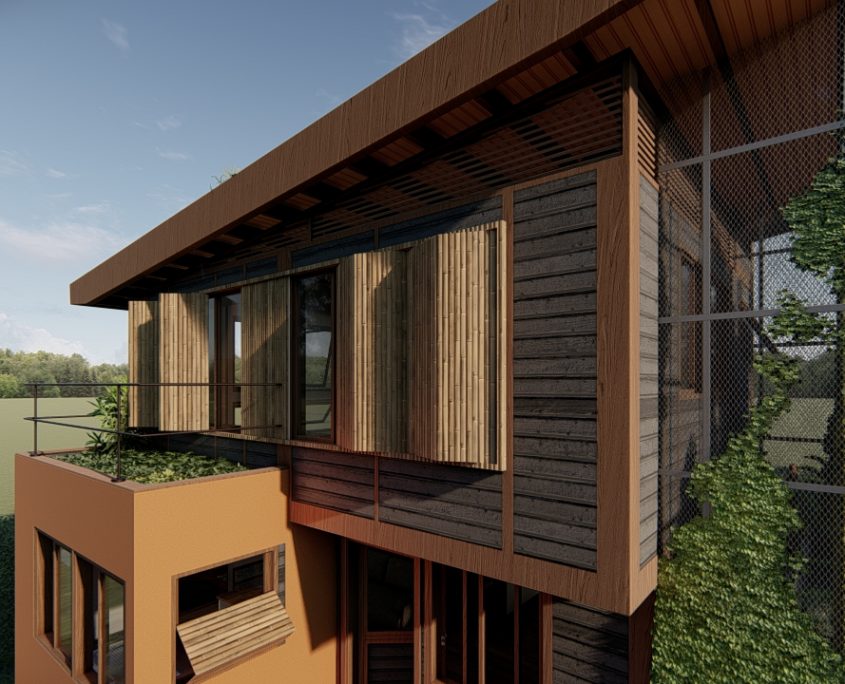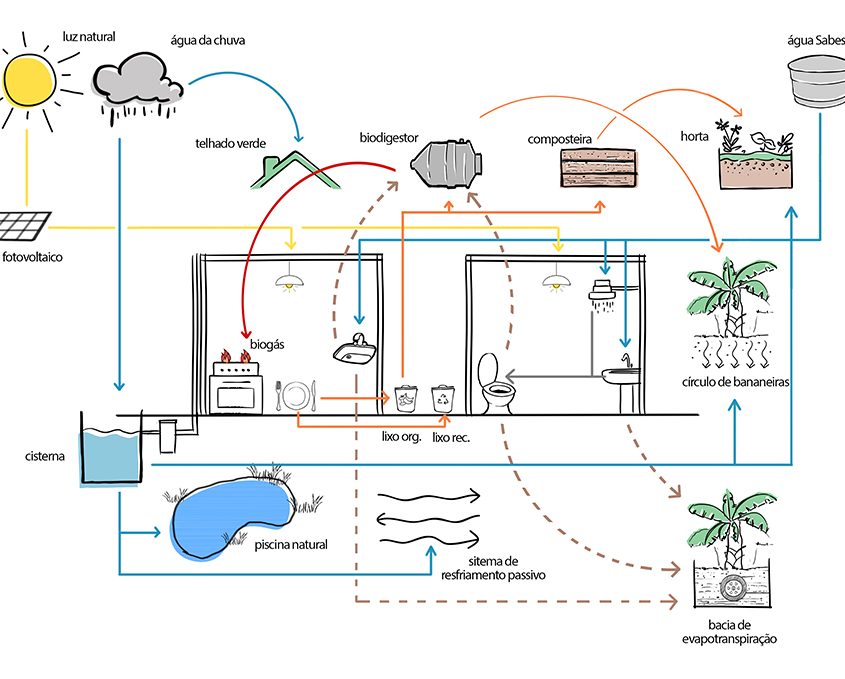Building for the circular economy makes lots of sense within the context of the Covid-19 pandemic, which has been challenging the status quo of our cities and way of life. The pandemic shows that, more than ever, we need to rethink how we occupy our territories and challenge society to redefine its values and plan for the next challenges. In this context, a key element for transiting to a better and more circular society is to review the connection with the environment in which we live developing strategies for us to live integrated to a healthier planet.
Casa Circular project emerges even before the pandemic scenario, as a way for us to answer environmental challenges we’ve been facing over the past decades. Casa Circular #2 is a building designed for circular economy and inspired by the Cradle to Cradle® (C2C) design framework. In this house, resources such as water, energy, biological nutrients and building materials are designed for being reused and recycled indefinitely and to circulate in safe and healthy flows.
This pioneering model of this construction was already presented here on the blog – in 2017, when we built Casa Circular # 1 – atelier. Casa Circular # 2 will be built in Jaguariúna, a medium city from São Paulo State. And it follows the same design principle and criteria as the first house. The main difference is that this will be a family house (the first serves as a studio), adding complexity to the design solutions.
Innovation of inhabiting and construction standards
The owners of the Casa Circular #2 have been seeking to change their living standards to a simpler and more sustainable life. They have been already studying circular economy through one of our courses at Ideia Circular. And they want to reflect this knowledge to new ways of living in their new home.
They aim to take care of water, capture renewable energy and apply the concept of a house being a material bank – enabling it to expand or to be reassembled in any other location. Rainwater harvesting systems, water reuse, waste treatment, nutrients composting and biodigestion, green roof, passive architecture, natural swimming pool, are solutions for Casa Circular.
Planning
Planning is the most important step for this kind of innovation, because it enables continuous optimization of resource use and solutions. Therefore, the planning phase started from a research about existing species in the region and went until the furniture design: always seeking greater efficiency and versatility.
Prefabricated woodframe panels compose the modular construction system. Woodframe allows extensions, reductions and also dismemberment of the construction, enabling future materials transformation into new products and uses. Toxic resins, glue or mortar are not part of the project to allow that each material can return to its cycle in a healthy way.
Bioclimatic strategies
Casa Circular is designed to optimize renewable resources and to exist in harmony with the natural environment. Jaguariúna is a hot climate city during most of the year. The natural cooling system associates water slides with the positioning of the windows causing the ‘chimney effect’, which releases hot air through the upper openings. The rammed earth wall, the plant nursery attached to the facade, the green roof and the natural pool are also part of the thermal and acoustic comfort strategies, at the same time these solutions fulfill other functions as well. The pool, for example, captures and reserves rainwater, cools the internal and external spaces while ensuring a healthy area for leisure and rest.
Besides, several elements function for the treatment of water and organic matter: evapotranspiration basin for gray and black water from toilets, banana circle for gray water, biodigester for animal waste and organic matter and compost system for organic waste from the kitchen, which will feed back the vegetable garden and the plant nursery.
The house with infinite life
Living in the Casa Circular is a new way of inhabiting the Planet, as the Casa is seen as an integral part of nature. Moreover, the house proposes another way of constructing, where there is no concept of waste. Natural resources and healthy materials circulate within their spheres, either the biosphere or technosphere. Circular design and Cradle to Cradle® framework address buildings as material banks by thinking about what can happen next to each material, product or resource being used. And by doing so, the house connects with the surrounding areas and supports biodiversity, becoming a healthy, circular and regenerative place.
